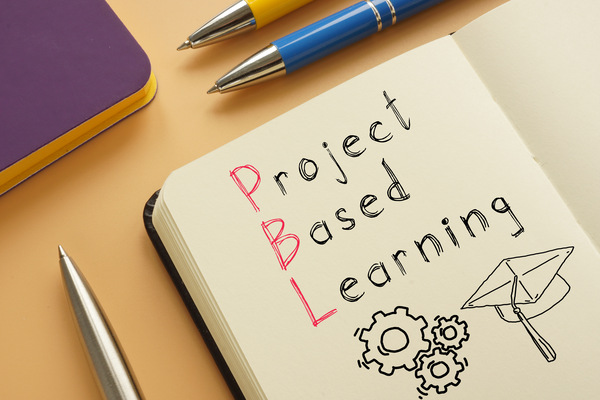Let’s Talk Kids’ Fashion!
hat’s hot in fashion this season? What outfits are all the cool kids wearing? Can you show the world who you are by what shirt you put on? Let’s talk about it. First, there’s something very important that you need to know.
When you grow up you will look at what you are wearing now and roll your eyes or burst out laughing. Sure, you can wear loose pants that threaten to fall off, but when you get older, you’ll wonder why you did.
Fashion Tips for The Real You
Don’t dress to please an older, wiser version of you. Dress for now. Wear what fits the day you are living.
Here are a few points you can always keeping mind when you consider when striving to be fashionable:
Your clothes should let you live your life
Your clothes should let you live your life. You run, jump, sit, catch balls, eat, walk. Your clothes should let you do those activities. When you try on pants, walk around in them. Sit down in them. Do you still feel comfortable? If you don’t, try on a different pair. Does your new shirt let you reach over your head? If so, you’ve picked the right shirt. Does the shirt print bring out the best in your personality? If not, try another one! Fashion doesn’t matter when it won’t let you be you.
Your clothes need to fit the weather
Face it, you would look pretty silly wearing a windbreaker in a snow storm. You could also get sick. If you wear a big puffy coat on a hot day, you’ll be sticky and sweaty and might even get weak from the heat. When you dress to fit Mother Nature, you can enjoy the world. Check weather reports or listen to what your parents say about weather conditions.
Really think about the heroes and statements you wear on your t-shirts
When you wear a famous face, you tell the world that you admire this person. Beware. Many people whose faces are printed on shirts are not all that admirable. A good example is Lance Armstrong. For many, many years Lance was a hero to people. He won international bicycle races and an Olympic medal. He also fought cancer and won, which is admirable. In time, the truth came out. Lance had cheated to win his races and medals. He is no longer considered a hero or role model. So what should you do? Read up on people before wearing them on your body. Talk to your parents. Look for real heroes.
Always wear shoes you can run in
Color doesn’t matter. Style is up to you. They don’t even have to be officially running shoes. The important fact is this: If you can run in your shoes, you will have more fun and be safer. If you can run in your shoes, you can dance, play ball, quickly help a friend, carry grocery bags and move! Good shoes give you freedom.
Dress for the occasion
You wouldn’t shovel snow in a bathing suit. You wouldn’t wear a snow suit to play basketball. When you visit your grandparents or open your first bank account or visit a friend in the hospital, some fashion will make others feel uncomfortable. When you dress for the event, people won’t be staring at the funny fashion you have on. They’ll be looking at you.
What is fashion? Is it what your favorite rapper wears or what you see on the cover of magazines? Yes, but fashion is also what you put on every morning. Don’t let fashion rule you. Rock fashion yourself.
What Did Kim and Justin Give You?
 There’s something fun and kind of cozy—and maybe a little snobbish—about using the same shampoo that Selena Gomez uses. You feel special using the same foundation as Kim Kardashian. You send flowers to your mom, just like Justin Bieber did.
There’s something fun and kind of cozy—and maybe a little snobbish—about using the same shampoo that Selena Gomez uses. You feel special using the same foundation as Kim Kardashian. You send flowers to your mom, just like Justin Bieber did.
It’s natural to feel like you are part of an exclusive, personal group of friends who Selena, Justin and Kim confide in, giving you secret insight into their celebrity lives through their tweets and posts.
Well, hold on to your tablet. Kim and Selena and Justin aren’t necessarily sharing personal information with you. They might not even really be as excited about those products as they let us on to believe. Those cozy tweets and posts might be quick ways for them to make extra money.
Advertising and Celebrity Fashion
Advertising professionals pick celebrities to tweet or post pictures about the products they are trying to sell. Being paid makes a difference.
When we see commercials on television, we know that the stars who talk about products are paid generously. We take that into account when deciding to buy what they are selling. When your friends tell you about a product, chances are that they are not being paid and really do like or use that brand of jeans or hair gel.
Social Media Influencers
Social media is a new form of communication. People feel close to the people they follow. When a social media “friend” tells you about a new movie they like or a skin cream they use, they could be telling you that because a company is paying them lots and lots of money.
How much money? Kim Kardashian, the undisputed queen of making money on social media, makes up to $20,000 for a tweet about a product. She is paid a reported $300,000 for an Instagram post.
Other celebrities that can demand huge amounts are any Kardashian, Jared Leto, Kendall Jenner, P. Diddy, Gigi Hadid, Lindsay Lohan and most sports figures—including Mike Tyson.
Legally, there is nothing wrong with making money by telling people about your interests and the items you use. What is questionable is how consumers buy products solely because a celebrity endorsing it. Is it the best product and do we even need it?
Do celebrities truly love a product when posting a picture or tweeting about it when they are getting a lot of money to do so?
Mind Your Money
The reason these big payments should matter to you is because you end up buying Kim Kardashian million-dollar earrings and Mike Tyson’s new car. When companies pay these celebs money, the companies make that money back by charging you more.
You help pay for mansions, fleets of cars, expensive clothes, luxurious trips and outrageous jewelry.
The other thing to think about is this: What did Kim and Justin give you?








